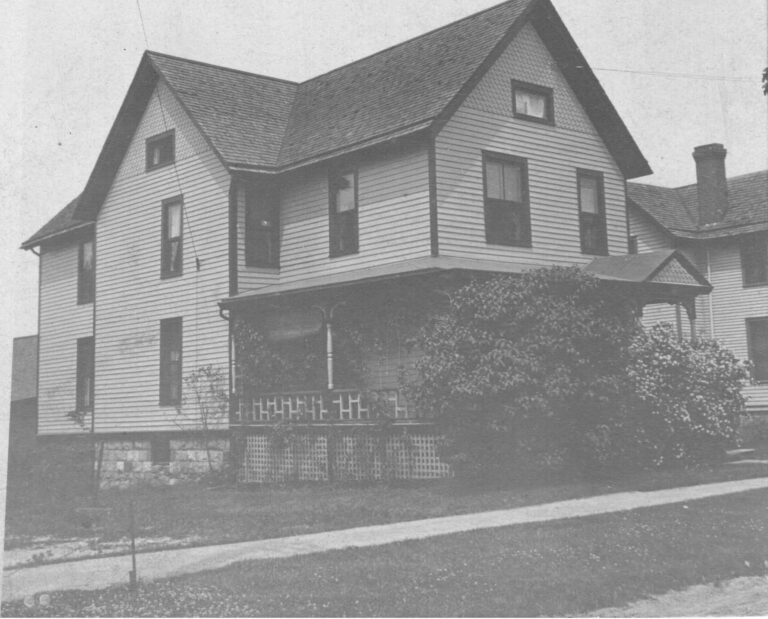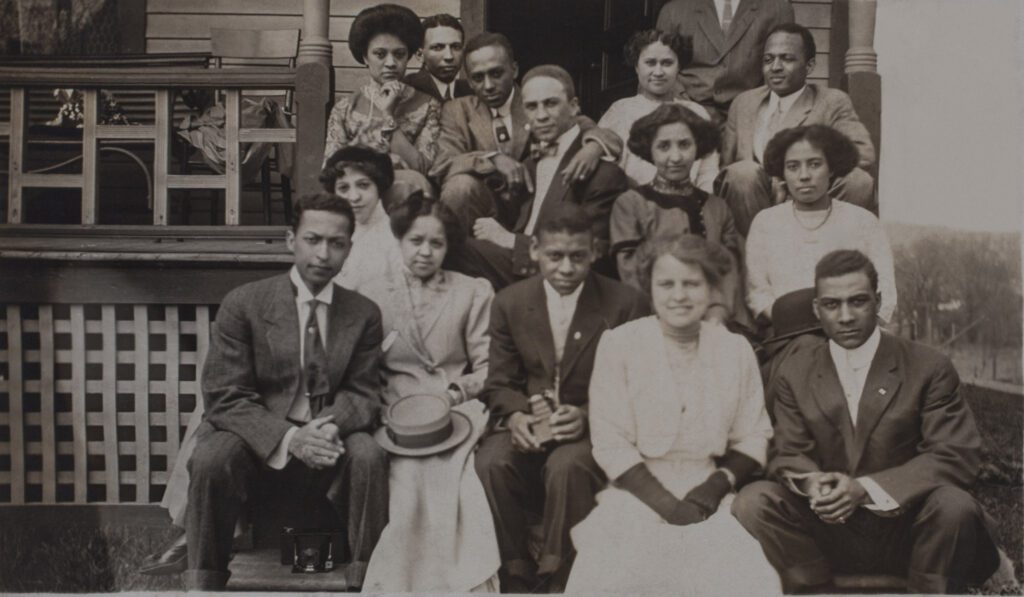When Brian Williams was contacted about a set of rare photos for sale on eBay, he quickly realized they were worth far more than a thousand words. As Bentley Historical Library’s lead archivist spearheading the African American Student Project, Williams knew these pictures held decades of historical context in the quest to document and understand the African American experience at the University of Michigan.
The project — started by Williams and fellow Bentley researchers in 2016 — includes a database documenting every African American student who enrolled at the University between 1853 and 1970 and an accompanying collection of archival materials and data.
Through their findings, researchers created an interactive map for the project’s website that illustrates the history of housing segregation between 1853 and 1973. In their research, they noticed a few addresses appeared repeatedly over the century of data collection.
“We started realizing these addresses kept recurring because these students could really only live in the Black part of town and very few boarding houses,” Williams recalls. “We started looking at the digitized student directories, punched in those addresses, and harvested all the names that came back.”
One address helped Williams and his team identify 63 students — 1017 Catherine Street, where six Black students gathered in 1909 to form the Epsilon Chapter of the Alpha Phi Alpha Fraternity, the first African American Greek organization at the University of Michigan. The house was the site of many other significant historical moments and events for African Americans at the University, including the fraternity’s initiation of renowned scholar W.E.B. Du Bois during his visit to campus that same year.
As the home was demolished in 1963, Williams recognizes that their findings may have remained merely a list of addresses and names had it not been for the contributions of those connected to the home’s history.
“This project was something we hadn’t really publicized very much, so as more people started to hear about it, important discoveries kind of happened over the course of it that ultimately helped us realize how significant these findings were.”

In February 2018, Alpha Phi Alpha members Dr. William “Nick” Collins, ‘70, MA’72, PhD’75, Director of the Center for Educational Outreach at U-M, and Dr. Rashid Faisal, MA’05, PhD’20, Associate Professor of Health and Human Services at UM-Dearborn, connected with Williams about the rare photographs, dated in 1912, which were miscellaneous shots of several fraternity members at none other than 1017 Catherine Street.
“They had no background other than that they were discovered at an estate or garage sale in California, but they wanted to know if the Bentley would buy them so that they didn’t disappear,” Williams recalls. “That’s not something the Bentley has ever done, but we pitched the idea to the administration, and they made an exception to buy this set of really rare photos off of eBay.”
In June 2022, Sharon Patton, an associate professor in History of Art and African Studies and former Director of the Center for African American Studies (CAAS), reached out with more photos documenting some of the chapter’s earliest history.
Patton’s grandfather, Richard Hill Jr., was a 1911 law school graduate and member of Alpha Phi Alpha; she identified him in one of the photos they’d acquired. The historian also had several of her own photos from his time in the fraternity that she was interested in donating to the Bentley.
One photo showed students at a formal banquet hosted at the home in 1911, another showed Hill and an unidentified male on the lawn of the Alpha Phi Alpha house donned in their graduation caps and gowns.
“It’s just remarkable, because mostly what we have for Black students at that time are just formal photos — like a composite photo of the entire graduating class — where they’re looking serious,” Williams explains. “These are some of the earliest photos we have of Black students looking happy on campus, and now we have them.”
Williams recognizes how critical these discoveries were in expanding research avenues for the project, not only to build the database but also to paint a more accurate picture of what life on campus was like for African American students.
“Photos just like these help to visualize and understand that this is one of those houses that’s so important, and we could just track through those directories all the students that lived in that house and ultimately grow the database,” he says. “Historical context provided by those who have personal connections to these houses and the people living in them really opened a lot of doors for our research and helped tie up loose ends for questions we might not have otherwise had answers for.”
Katie Frankhart is a senior writer for the Alumni Association of the University of Michigan.
To learn more, visit africanamericanstudentproject.bentley.umich.edu.





